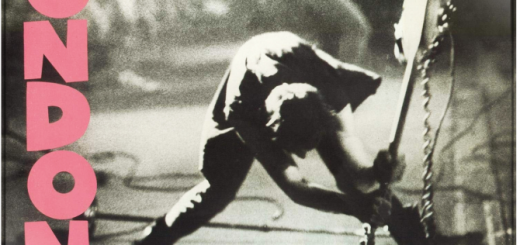English Civil War by The Clash Lyrics Meaning – An Anthem of Disillusionment in Modern Warfare
Lyrics
Marching home again
He’s coming by bus or underground
A woman’s eye will shed a tear
To see his face so beaten in fear
An’ it was just around the corner in the English civil war
It was still at the stage of clubs and fists
When that well-known face got beaten to bits
Your face was blue in the light of the screen
As we watched the speech of an animal scream
The new party army was marching right over our heads
Alright
There you are, ha ha, I told you so
Says everybody that we know
But who hid a radio under the stairs
An’ who got caught out on their unawares?
When that new party army came marching right up the stairs
When johnny comes marching home again
Nobody understands it can happen again
The sun is shining an’ the kids are shouting loud
But you gotta know it’s shining through a crack in the cloud
And the shadows keep falling when Johnny comes marching home
Through the punk-infused roar of guitars and the impassioned cries of frontman Joe Strummer, The Clash’s ‘English Civil War’ is not just a song; it is a historical passage, a cry of resistance, and a mirror reflecting the repetitious nature of conflict. Anchored in the turbulent currents of the late ’70s, this track from their 1978 album ‘Give ‘Em Enough Rope’ resonates with the beat of boots on the ground and the timeless struggle against oppression.
Decoding the dense tapestry of this anthem reveals layers of meaning, both blunt and subtle, that speak to the ethos of a generation disillusioned by the ever-lingering spectre of war. At its core, the song is a rally against the cyclical, often senseless violence that mars human history, set against the backdrop of Britain’s own tumultuous political landscape.
The Beat of Dissent: Punk’s Riff Against Authority
Punk rock was never just about the music; it was an entire subculture, one that The Clash embodied ardently with their melding of reggae, rock, and a hefty dose of political savvy. ‘English Civil War’ reverberates with the political heartbeat of the punk scene, a beat driven by fierce opposition to establishment and the social order of the day.
The Clash utilized their platform to challenge listeners, suggesting that the passive consumption of media and politics could lead one down the path to violent upheaval, akin to the English Civil Wars of the 17th century. It’s through this lens that they dare to inspire a counterculture questioning the very fabric of society.
History Repeating: An Echo of the 17th Century
Despite its modern veneer, ‘English Civil War’ draws a direct line to the conflicts of 1642-1651 between Parliamentarians (‘Roundheads’) and Royalists (‘Cavaliers’). The historical reference is no accident; The Clash sought to illustrate that the essence of civil strife, power struggles and ideological clashes are as prevalent in the modern day as they were back then.
Through their gritty lens, the song warns of a ‘new party army’ – a modern force, not unlike the authoritarian powers of old, poised to subjugate with an iron fist. In doing so, The Clash invites an examination of the current socio-political environment and its chilling parallels with the past.
The Haunting Refrain: ‘When Johnny Comes Marching Home’
This song’s biting challenge to the romanticism of war is encapsulated in the chorus, borrowed from the American Civil War tune ‘When Johnny Comes Marching Home’. The Clash subvert this jubilant homecoming march into a chilling omen, alluding to the inexorable return of conflict. This haunting refrain becomes a proclamation that the cycle of war spares no society, no epoch.
By juxtaposing this with contemporary scenes – Johnny ‘coming by bus or underground’ – The Clash collapse historical distance, making clear the ongoing relevance of their message. The inclusivity of ‘Johnny’ acts as a universal soldier, representing every person sent to the front lines, often returning changed, damaged, or not at all.
Under the Stairs: The Hidden Meaning
Within ‘English Civil War,’ The Clash embed a cryptic narrative about individuals hiding radios under the stairs, an act that alludes to the necessity of alternative information channels and underground resistance. It’s a shout-out to those who choose to be informed, to rebel rather than swallow state-fed propaganda.
This hidden radio serves as a metaphor for the underground movement of the time, be it in music or in ideology. It’s a clarion call to awareness and activism, a reminder that apathy equals complicity, and knowledge is power amid societal upheaval.
Through a Crack in the Cloud: The Memorable Lines
‘The sun is shining an’ the kids are shouting loud / But you gotta know it’s shining through a crack in the cloud.’ These lines deliver a potent and memorable message: that even in seemingly peaceful times, the undercurrents of unrest and the potential for conflict are ever-present, waiting just beneath the surface.
By evoking the imagery of a clouded sky with only glimpses of brightness, The Clash poetically captures the façade of tranquility that can often precede societal storms. It’s a stark reminder that vigilance and awareness are crucial, lest history’s dark chapters repeat themselves under our watch.








